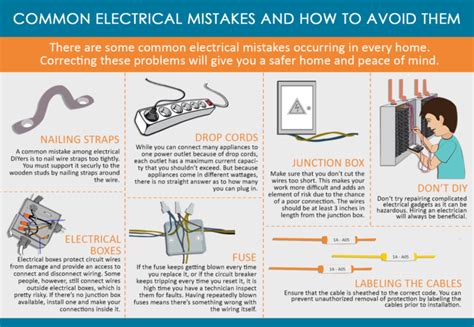As electric vehicles (EVs) continue to revolutionize the automotive industry, understanding how to prevent common errors becomes essential for every EV owner. With their unique technology, EVs can present specific challenges that, if not addressed, may lead to decreased performance or inconvenient breakdowns. This article will delve into the most frequent electric vehicle errors, from software glitches to battery concerns, and provide invaluable tips and tricks to keep your vehicle running smoothly. By emphasizing regular maintenance, driver education, and the right charging infrastructure, we aim to equip you with the knowledge to enhance your EV experience. Whether you’re a seasoned driver or a new entrant to the world of electric mobility, this guide seeks to ensure that you navigate your journey without the typical hurdles associated with electric vehicles. Join us as we explore best practices for preventing electric vehicle errors and ensure a seamless driving experience.
Understanding Common Electrical Vehicle Errors
As electric vehicles (EVs) gain popularity, understanding the common errors associated with them becomes essential for every driver. Recognizing these issues can significantly contribute to preventing electric vehicle errors that might affect the performance and longevity of the vehicle.
Some of the most prevalent errors in electric vehicles include:
- Battery Management Issues: Problems can arise from battery management systems (BMS) that fail to accurately monitor battery health, leading to reduced range and efficiency.
- Charging Errors: Improper charging practices, such as overcharging or using incompatible chargers, can lead to battery damage and decrease the overall lifespan of the vehicle.
- Software Glitches: Like any modern technology, EVs rely heavily on software. Bugs or outdated software can create errors in the car’s systems, affecting everything from energy consumption to navigation.
- Temperature Sensitivity: Electric vehicles can be sensitive to extreme temperatures, which can lead to issues such as reduced battery efficiency and operational challenges in severe weather.
- Range Anxiety: While not an error in the traditional sense, misconceptions about range and charging availability can lead to inefficient planning and anxiety while driving an electric vehicle.
By educating oneself about these common errors, drivers can take proactive steps towards preventing electric vehicle errors, ensuring a smoother and more enjoyable driving experience with their EVs.
Key Factors In Preventing Electric Vehicle Errors
Preventing electric vehicle errors requires a proactive approach and attention to detail. Here are some key factors that contribute to minimizing the risks of encountering errors with your electric vehicle:
By focusing on these factors, electric vehicle owners can significantly reduce the likelihood of errors, ensuring a smoother and more reliable driving experience.
Regular Maintenance Tips For Electric Vehicles
Regular maintenance is crucial for preventing electric vehicle errors and ensuring optimal performance. Here are some essential tips to keep your electric vehicle in top shape:
By incorporating these regular maintenance practices, you can significantly lower the risk of encountering unexpected problems, thereby playing a vital role in preventing electric vehicle errors.
How Software Updates Help Prevent Errors
One of the essential steps in preventing electric vehicle errors is keeping the vehicle’s software up to date. Electric vehicles (EVs) rely heavily on software for not just performance, but also for diagnostics, navigation, and battery management. Regular software updates from manufacturers can significantly reduce the likelihood of errors and improve overall vehicle functionality.
Here are some key reasons why staying updated is crucial:
- Bug Fixes: Like any other software, the systems in EVs can have bugs. Manufacturers frequently release updates to fix these issues, enhancing the reliability of the vehicle.
- Improved Algorithms: Over time, manufacturers develop better algorithms for managing battery life, energy consumption, and other functions. Updates can implement these improvements, ensuring optimal performance.
- Enhanced Features: Software updates often include new features that make the vehicle easier to use and more efficient. These improvements can range from intuitive user interfaces to new driving modes that maximize efficiency.
- Security Enhancements: Just like any internet-connected device, EVs are susceptible to cybersecurity threats. Manufacturers frequently release updates to bolster security, protecting the vehicle from potential vulnerabilities.
- Diagnostics Updates: Advanced diagnostic systems in EVs can identify potential issues. By updating the software, you ensure these systems are as accurate and effective as possible, leading to early detection of any problems.
Regular software updates play a vital role in preventing electric vehicle errors. By ensuring that your EV’s software is always current, you can help maintain its performance and safety, ultimately prolonging the lifespan of your vehicle.
Battery Care: Essential For Error Prevention
Proper battery care is critical in preventing electric vehicle errors. As the heart of an electric vehicle, the battery requires attention to ensure optimal performance and longevity. Here are some key practices to help maintain your vehicle’s battery health and prevent potential issues:
By implementing these battery care practices, electric vehicle owners can significantly reduce the likelihood of preventing electric vehicle errors, ensuring a smoother and more reliable driving experience.
Choosing Quality Charging Stations To Avoid Issues
One of the critical aspects of preventing electric vehicle errors lies in selecting the right charging stations. The quality and reliability of charging infrastructure can significantly impact your vehicle’s performance and longevity.
When choosing charging stations, consider the following factors:
| Criteria | Importance | Tips |
|---|---|---|
| Station Compatibility | Ensures your EV can charge effectively | Check manufacturer specifications |
| Charging Speed | Affects how quickly your vehicle charges | Opt for Level 2 or DC fast chargers for optimal speed |
| Location Security | Safety while charging your vehicle | Use stations in well-lit, monitored areas |
| Station Maintenance | Reduces the risk of malfunction | Choose well-maintained and frequently used stations |
| User Reviews | Provides real-world insights into station performance | Research user feedback before selecting |
By prioritizing these criteria when selecting charging stations, you can enhance your electric vehicle experience and effectively contribute to preventing electric vehicle errors that could stem from improper charging conditions. A reliable charging station not only prevents technical issues but also improves the overall efficiency of your electric vehicle.
Driver Education: A Critical Component In Preventing Electric Vehicle Errors
Driver education plays a pivotal role in preventing electric vehicle errors. Understanding how electric vehicles (EVs) function differently from traditional vehicles can significantly reduce the likelihood of operational mistakes that could lead to performance issues or even safety concerns. Here are key aspects of driver education that can help enhance the competence and confidence of EV drivers:
| Key Education Topics | Importance |
|---|---|
| EV Operation Basics | Familiarizing drivers with EV controls, regenerative braking, and energy management helps prevent common operational errors. |
| Charging Procedures | Educating drivers on proper charging techniques and the significance of using compatible charging stations can avoid damages and inefficiencies. |
| Understanding Battery Health | Enabling drivers to monitor battery levels and recognize early signs of battery deterioration helps in timely maintenance, thus preventing issues. |
| Recognizing Warning Signs | Teaching drivers to interpret diagnostic alerts effectively allows for prompt action to address potential problems before they escalate. |
Moreover, driver education programs should incorporate real-world scenarios where drivers practice sustainable driving techniques that take advantage of an EV’s unique capabilities. This includes eco-driving strategies that not only enhance the driving experience but also contribute to prolonging battery life and reducing wear and tear, directly addressing many potential sources of preventing electric vehicle errors.
By investing in comprehensive driver education, both manufacturers and EV owners can foster a more knowledgeable user base, ultimately leading to safer, more efficient, and error-free electric vehicle operations.
Monitoring Diagnostic Alerts For Early Issue Detection
One of the most effective methods of preventing electric vehicle errors is through the vigilant monitoring of diagnostic alerts. Modern electric vehicles (EVs) are equipped with sophisticated onboard diagnostic systems that continuously track the performance of various components. These systems generate alerts that can indicate potential issues before they develop into significant problems.
By paying attention to these alerts, drivers can take proactive measures to address issues early on. Here are some key aspects of monitoring diagnostic alerts:
- Real-Time Alerts: Many EVs provide real-time notifications through the dashboard or mobile apps. Staying connected to these alerts ensures that drivers are informed immediately about any irregularities.
- Understanding Warning Lights: Familiarize yourself with the meaning of warning lights on the dashboard. Different colors and symbols indicate various levels of urgency, and understanding these can lead to timely action.
- Regular Checkups: Schedule regular maintenance checks to review the diagnostic results under the guidance of professionals. They can interpret the data more accurately and suggest necessary preventive measures.
- Data Logging: Some EVs offer the possibility of logging diagnostic data over time, allowing drivers to identify patterns and trends that could indicate emerging problems.
The proactive monitoring of diagnostic alerts not only enhances the vehicle’s reliability but significantly contributes to preventing electric vehicle errors. By actively engaging with these systems, drivers can ensure a safer and more efficient driving experience.
The Role Of Weather Conditions In Electric Vehicle Performance
Weather conditions can significantly impact the performance of electric vehicles (EVs), influencing both efficiency and battery life. Understanding how different weather elements affect your EV is crucial for preventing electric vehicle errors and ensuring optimal operation.
Here are some key weather factors to consider:
| Weather Condition | Impact on Performance | Prevention Tips |
|---|---|---|
| Extreme Cold | Reduced battery capacity and range | Use preconditioning features and park in a garage if possible. |
| Extreme Heat | Increased battery degradation over time | Avoid direct sunlight, use shaded areas for parking. |
| Heavy Rain/Snow | Potential for slippery roads and reduced traction | Use appropriate tires and drive cautiously; check traction management systems. |
| Humidity | Possible impact on charging efficiency | Check charging stations for special requirements in humid conditions. |
When extreme weather occurs, staying informed about these influences can help you take proactive steps in managing your vehicle and battery life. By being aware of how preventing electric vehicle errors involves adapting to weather, you enhance both safety and performance during varied conditions.
Conclusion: Best Practices For Preventing Electric Vehicle Errors
preventing electric vehicle errors is integral to ensuring a safe and efficient driving experience. By integrating regular maintenance schedules, staying updated with software changes, and practicing diligent battery care, drivers can significantly reduce the risk of malfunctions. Understanding the importance of selecting quality charging stations and staying well-informed about the vehicle’s diagnostic alerts can also play a crucial role in mitigating issues.
Additionally, driver education is essential; being aware of the vehicle’s capabilities and limitations enables a proactive approach to error prevention. Moreover, it is important to consider external factors such as weather conditions, which can impact performance. By being proactive and informed, drivers can enjoy the benefits of their electric vehicles while minimizing potential errors.
Adopting these best practices will not only enhance the longevity of electric vehicles but will also contribute to a more sustainable and enjoyable driving experience.
Frequently Asked Questions
What are common errors that electric vehicle (EV) owners encounter?
Common errors include improper charging practices, ignoring battery maintenance, not updating software, and misconceptions about range and power consumption.
How can I ensure proper charging of my electric vehicle?
To ensure proper charging, use the manufacturer’s recommended charging station, avoid letting the battery drain completely, and charge your vehicle during off-peak hours if possible.
What maintenance tips should I follow for my electric vehicle?
Regularly check tire pressure, ensure software is up to date, inspect brakes and regenerative braking systems, and monitor battery health via diagnostic tools.
How often should I update my EV’s software?
You should update your EV’s software whenever updates are available, as they may contain critical improvements and enhancements related to performance and safety.
What are the misconceptions about the range of electric vehicles?
Many people believe that EVs can only travel a short distance on a charge. However, most modern electric vehicles now offer ranges comparable to gasoline vehicles, and with proper planning, long trips are feasible.
What should I do if my electric vehicle’s battery does not charge?
First, check the charging station and cables for issues, ensure that your vehicle is properly connected, and consult your vehicle’s manual. If the problem persists, contact a certified technician.
Are there any eco-friendly tips for EV owners?
Yes, consider using renewable energy sources for charging, maintain energy-efficient driving habits, and support local initiatives that promote sustainable transportation.













